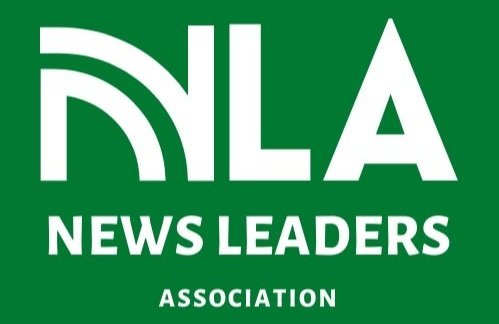Videos
Tackling misinformation: Lessons from 2020 for 2021
From the pandemic to the election, 2020 was rife with false claims and distorted narratives about critical issues. The challenges of mis- and disinformation are growing while newsroom resources decline. So how can your newsroom make the best use of the resources you have to respond in service to your communities?
We were joined by journalists Anjanette Delgado (Detroit Free Press), Shana Black (Black Girl Media), Nicolás Ríos (Documented) and Karen Mahabir (Associated Press) about the tools and strategies they deploy to uncover, understand and address the spread of false information. Andrew Rockway of API moderated the conversation.
This event was hosted by News Leaders Association and American Press Institute on April 16, 2021.
Crime, Mugshots and Takedown Requests: Addressing the long tail of digital crime reporting
People identified in crime news often face long-term effects that can last a lifetime. As newsrooms grapple with cultural shifts to address racism, social inequity and the damage a long-tail of publishing can cause, they're fielding an increase in requests to unpublish crime reports online. Even traditional crime reporting practices such as using mugshots are increasingly under scrutiny in newsrooms across the country.
News leaders from The Boston Globe, Chicago Tribune, Chattanooga Times Free Press and Cleveland.com share their newsrooms’ editorial policies and the philosophies driving them — including managing requests to remove, de-index or alter "the first draft of history." Deborah Dwyer, a fellow with the Reynolds Journalism Institute working on tools to help newsrooms address unpublishing, moderates the discussion.
This event was hosted by News Leaders Association and Reynolds Journalism Institute on April 9, 2021.
sunshine week 2021: inside the fight for public information
In 2020, access to public information became even more challenging. Government at all levels cited the pandemic for refusing to respond to records requests. Yet news organizations across the country published essential accountability journalism, breaking through barriers to open government. We spoke with journalists Andrea Gallo (The Advocate | The Times-Picayune), Derek Kravitz (The Brown Institute), plus David Snyder (First Amendment Coalition) on how they navigated barriers to public records to tell important stories about COVID-19, official misconduct and beyond. Nancy Ancrum, NLA Board member and Miami Herald editorial page editor, moderated the discussion.
An event from News Leaders Association in partnership with First Amendment Coalition.
Trusting News + NLA: Sustainability Relies on Trust
People pay for news they find credible and relevant — news they think has integrity. So how do journalists create products their communities will connect to and support financially?
Joy Mayer, director of Trusting News, joined News Leaders Association for a webinar Jan. 29, 2021, to discuss newsroom-tested strategies for improving perceptions of and support for journalism.
Newsroom Leadership in the age of Black Lives Matter
The pandemic, economic struggles, and demands for social justice are forcing newsrooms to account for their own failures at diversity, inclusion and representative coverage. Those failures have led to resignations of top leaders at The New York Times, Philadelphia Inquirer, and many other publications.
In a conversation co-hosted by the News Leaders Association and the National Press Club Journalism Institute and moderated by Gannett executive Mizell Stewart III, executive editors Katrice Hardy of the Indianapolis Star and Mary Irby-Jones of The (Jackson) Clarion-Ledger discussed how they are leading their newsrooms when issues of race and class are at the forefront.
How to recruit, develop and advance diverse investigative journalism teams
Journalists prize investigative work for the impact it has: unearthing risk and damage, holding the powerful to account, changing laws and changing lives. But investigative journalism jobs have long been the province of veteran reporters, usually white and male. As newsrooms commit to diversifying their teams, investigative journalists can better reflect underserved communities that have traditionally been harmed by systemic problems yet to be exposed.
Join moderator Manny Garcia, senior editor for the ProPublica-Texas Tribune Investigative Initiative; Maria Perez, investigative reporter at the Milwaukee Journal Sentinel; and Cheryl W. Thompson, investigative correspondent for NPR and president of Investigative Reporters and Editors, to learn “How to recruit, develop and advance diverse investigative journalism teams.”
The program took place July 24, 2020, and was co-hosted by the News Leaders Association and the National Press Club Journalism Institute.
How to mentor, sponsor and network with promising journalists before you’re recruiting -How to develop journalists to run investigative teams
How diverse investigative teams shape coverage, build trust & engage community
The first part of this program will be a conversation among the panelists, and the second part of the program will be a Q&A with participants.
Covering justice: Reimagining the cops, crime, courts beats
As journalism re-examines its relationship with communities of color, mug shot galleries are coming down, questions are coming up about police sourcing, and newsrooms are assessing the role of justice coverage.
This program from the National Press Club Journalism Institute and the News Leaders Association featured moderator Michael Days of the Philadelphia Inquirer and speakers Libor Jany of the Minneapolis Star Tribune and Jamiles Lartey of the Marshall Project.

